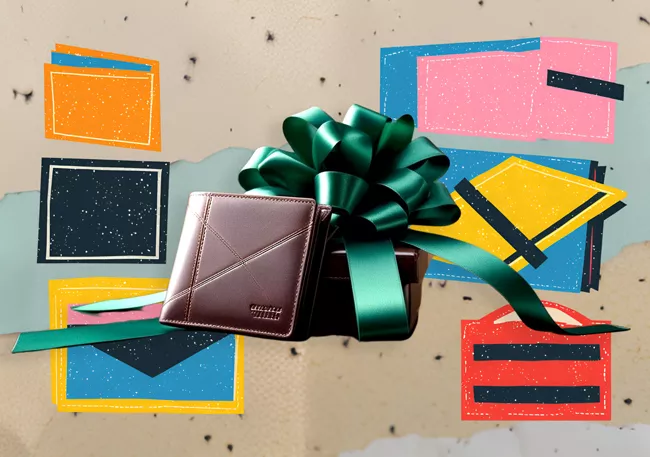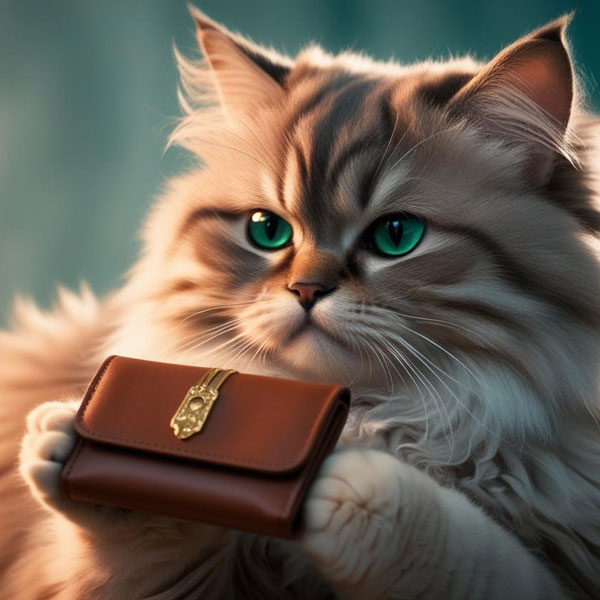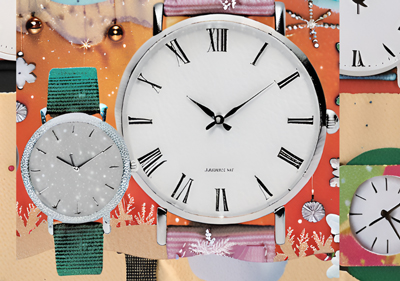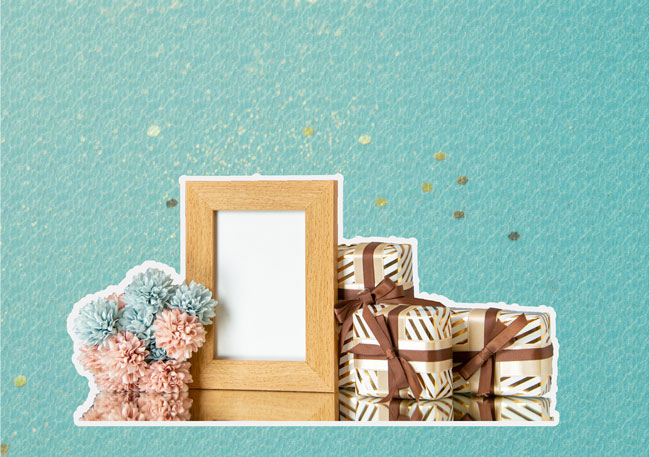Why You Shouldn’t Gift a Wallet Empty
Thinking of gifting a wallet? Don’t give it empty! Find out why adding a little cash or a lucky token can make all the difference.
Contents
When I was about to graduate from high school, my grandma got me a nice wallet as a gift. It was a simple, black leather wallet, nothing fancy. But inside? A crisp $20 bill and a note: “Always keep some money in your wallet. The gods will bless you with prosperity.” And even now, years later, she’ll always hand me some cash when I visit her. I don’t need the money but she reminds me not to keep the wallet empty as it brings bad luck.
A wallet is a classic gift. I’ve been gifted many in my life and it never upsets me. I don’t mind having an extra wallet. There’s a certain charm to getting a wallet as a gift. They’re practical, stylish, and a subtle nudge that maybe, just maybe, the recipient should get their finances in order (Some people do need that from time to time). Although, there’s a right way to gift a wallet. And a very wrong way.
Turns out, handing over an empty wallet is like giving someone a suitcase with a hole in the bottom—bad luck, bad vibes, and possibly a passive-aggressive message. Gifts are supposed to make people happy and the last thing anyone wants their gift to do is to offend their recipient.
Never Gift an Empty Wallet (Unless You Enjoy Side-Eye)
 Cats don't forgive bad gift etiquette.
Cats don't forgive bad gift etiquette. Ever heard the superstition about gifting an empty wallet? It’s more than just an old wives’ tale. Across cultures, from India to China to your boomer neighbor who keeps a lucky penny in his shoe, people believe an empty wallet symbolizes financial struggle and the people who believe in this stuff don’t want your wallet to curse them into going broke. And while you and I might think it’s silly, it’s best to not purposely offend those who do. The fix? Tuck a small bill or a lucky coin inside before handing it over. It doesn’t matter how much money is in the wallet. You don’t have to put a Benjamin in there.
It’s good practice, especially when giving wallet gifts to people that come from certain cultures. And while most people with western backgrounds wouldn’t mind, if you’re in doubt, just put a nickel in there. It’s rare that the gesture will offend anyone. Even if they’re not superstitious most people will take it as a harmless gesture.
A Quick Tour of Global Wallet Etiquette Wisdom
Different cultures have different practices on wallet gifting. It’s important to learn proper etiquette when you’re exchanging gifts with people who don’t share the same culture as you. And while I can’t cover wallet giving etiquette in all the cultures around the world, following are a few common ones.
Western Culture
In the west, people generally consider wallets as a thoughtful, practical gift that is a sign of respect. In the United States and many European countries, they see gifting a wallet as a gesture of wishing the recipient success, especially if they’re starting a new chapter in life, such as graduation, new job, getting promotion, etc.
People also tend to love personalized gifts and wallets with custom names and such are popular. If the recipient is a close friend, family member or a partner, try to give them a personalized wallet with initials or name engraved. These gifts convey meaning and signal closeness in relationships.
Chinese Culture
In traditional Chinese culture, people see gifting a wallet as a gesture that wishes wealth and prosperity upon the recipient. They also believe that giving an empty wallet will invite bad luck. If your recipient has a Chinese background, place a coin or a bill inside the wallet before you give it to them. And while the younger generation and those who live in the west will not likely be offended if you don’t, it’s good to play it safe.
Also, don’t give them a wallet with rounded shapes. They believe that it will cause the wealth to go in circles and leave them financially stagnant. The color of the wallet also matters. Avoid red, blue and white. Get brown, black or gold instead.
Latin American Culture
Latinos also believe that receiving an empty wallet brings misfortune, so put in some cash. How much will depend on the relationship with the recipient but even a dollar is enough. If you’re not from the culture and still respect the custom, they’ll find it charming.
Middle Eastern Culture
In the Middle East, wallet gifts are more than just gestures of wishing fortune. They symbolize status and wealth. People gift expensive wallets to show respect to the recipient’s position and status.
High quality, branded wallets are a common way to congratulate recipients on their achievements. Avoid giving cheap wallets to people from this culture. They might see it as a sign of disrespect. You’re better off buying something else.
Indian Culture
Indians consider getting a wallet as a gift as a gesture of wishing good fortune on the recipient. Wallets are popular gifts for men in that culture.
It’s common practice in India to include money when you’re gifting a wallet to someone. The amount doesn’t matter. You can put more money for someone close to you who is younger but someone with equal status might consider it as a sign of disrespect. To be safe, just put a coin in there. That should be enough.
Japanese Culture
The Japanese don’t consider wallets as everyday gifts. They’re reserved for close friends and family members as they carry deeper significance.
They also put great emphasis on presentation and you should put effort into wrapping the gift neatly as it signifies respect for the recipient. 1
They’re not fond of getting gifted empty wallets either. It’s considered bad luck, so put a penny in there.
Suggested

47 Awesome Japanese Gifts For Those Who Love The Country
A selection of Japanese gift ideas for enthusiasts of the Samurai country. A compilation of the finest Japa...
Final Thoughts
Gift giving etiquette can be complicated. However well intentioned you may be when picking a gift, you might unintentionally break a rule that will offend your recipient, so it’s important to be aware of cultural differences that lead to different interpretations of the same gestures. While not every culture requires you to put money in the wallet gift, just make it a habit of putting a dime in there just to be safe.
Article Sources
1. Japanese Gifts, Furoshiki Wrapping, and Color Symbolism














